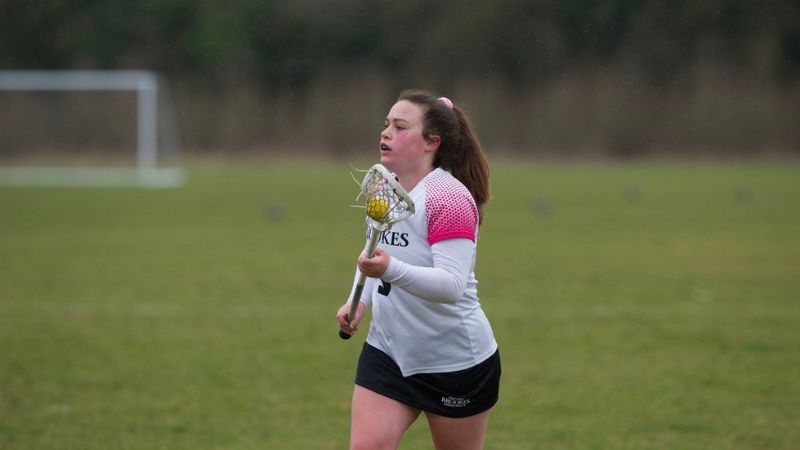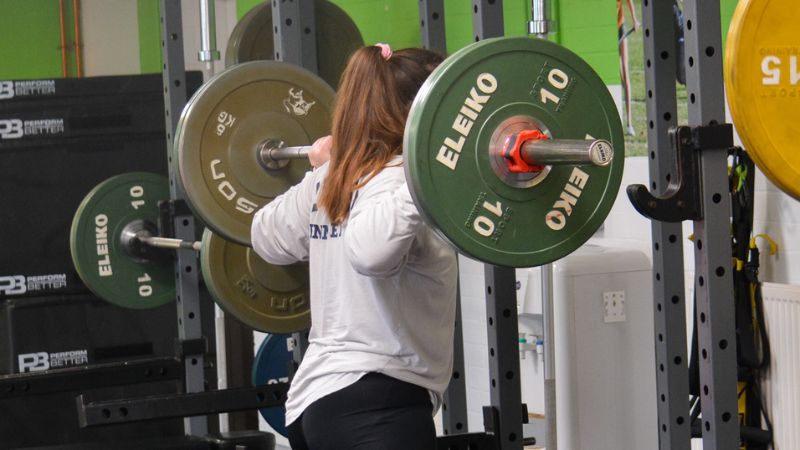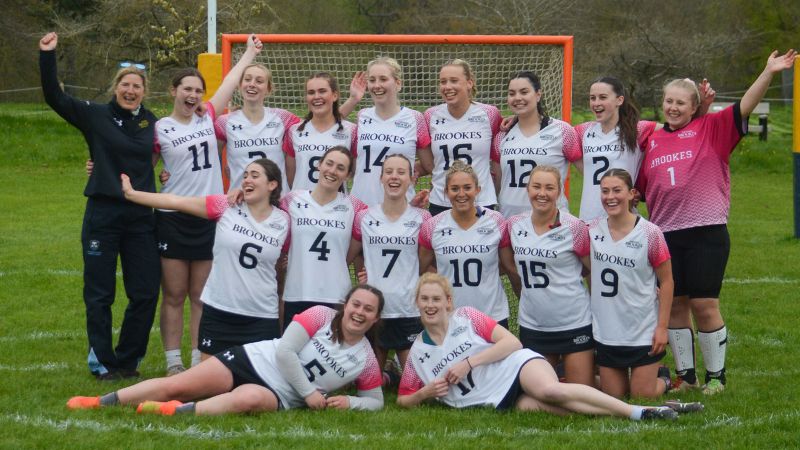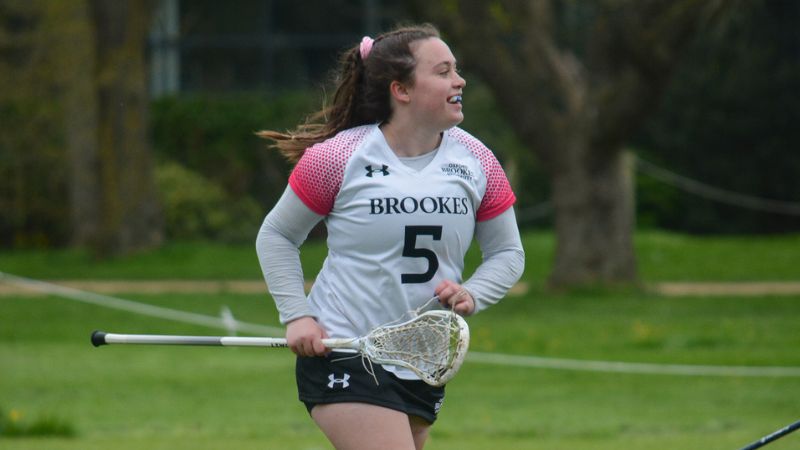Finding Hope - Abbi's Story

For Mental Health Awareness Week, we're so proud to have Abbi Willetts tell her story.
I think something that is often forgotten is that everyone has mental health just the same as everyone has physical health. At some point in our lives, we will fall over, graze a knee, break a bone or go through some sort of physical struggle. And at some point in our lives, we will all feel sad, upset, low, angry or go through some sort of mental struggle. But for some reason, the stigma behind struggling with your mental health is so much more significant than the near to non-existent stigma behind having a physical problem.
Everyone will face some sort of mental struggle in their life but not everyone will suffer from a mental illness and I think that’s where the blurred line that separates the two sometimes gets confused. But regardless of what your struggle is, I believe that everyone’s own individual struggles to them are incomparable to other people's and that no one should ever be made to feel their problems are less important or valid because they don’t have an official diagnosis or might not seem as severe as someone else. Everyone feels their emotions and deals with them differently and this mental health awareness week I would like to share my story to raise awareness with the intention it makes someone going through a hard time feel less alone and most importantly, like there is hope.
This May, I am running a mile every day for the month raising money for the charity Oxfordshire Mind. I had been wanting to raise some money for the charity for a while and this challenge came to mind and I deemed it perfectly appropriate given my story and my background which I will give you a bit of background into now. I want to approach this from 2 angles: firstly, I want to talk about my experience with OCD and why it’s so important to me to raise awareness around this subject. Secondly, I want to talk about my experience with feeling extremely low, how this affected me and why this has led me to choose the challenge I am taking on this month.

I’ve struggled with my mental health from a very young age, primarily suffering with a severe form of OCD that manifests itself in many ways but initially manifested as compulsive handwashing at the age of four. My parents took me to the doctor at this young age and suggested they think I might have OCD but this was quickly dismissed by the doctor as me being a ‘difficult child’ and that I would grow out of it. Over the years my obsessions and compulsions developed so much and got so severe that it got to the point at school where I physically couldn’t touch anything and I would have panic attacks if I did actually touch anything and could spend around ten minutes at a time washing my hands. I even got stuck in a room at one point because I physically couldn’t find a way to get out without making myself ‘unclean’. As well as this I struggled severely with intrusive thoughts, repeating things until they felt ‘right’, confessing everything I thought, over-explaining all my thoughts, a constant need for reassurance and having a problem with certain numbers. I truly believe that if there had been more awareness around OCD at the time my parents initially took me to the doctor and I had had some early intervention, then the severity it reached could have been avoidable.
I think for me, raising awareness around OCD is so important because there have been so many times I’ve heard the phrase ‘I’m so OCD’ being thrown around without anyone giving a second thought to how debilitating a disorder it is and how this could be demeaning to people who actually suffer with it. I don’t mind the odd joke here and there, especially from my close friends as I know they understand the consequences struggling with OCD can have. But when people don’t take the time to understand OCD as a disorder or have any experience of living with someone with it, although I can understand that it’s hard to get your head around, I find my heart sinking when I hear the term being thrown around as if it’s a fun and ‘quirky’ disorder to live with. My advice to anyone who doesn’t understand OCD in its real and various forms and not just the stereotypes of people who like to be tidy or like lining things up in a certain way, would simply be to read up about it. There is so much information out there on what OCD is and so many stories of what living with it is like and I think awareness around this is unbelievably important.
From about the age of fifteen, I started to find myself becoming very low and having feelings of depression like I’d never felt before. My OCD was at its all-time worst and my world was becoming darker and darker around me. This is not an easy subject for me to talk about but I feel it is necessary in understanding why I’m taking on the challenge I am and how life can get to the lowest of lows and there is always a way to come back from it. Over the last six or seven years, self-harm became a big and very significant part of my life. I don’t want to go into too much detail as I do not believe it is helpful but what started out as very minor ended up very severe and all I could see was darkness. I saw no way out and no way of coping or surviving without it. I can well and truly say, that even though I had always struggled mentally, this was not the route I expected my life to take. It became something I relied on so heavily and altered my life in ways I never thought it could. It made me withdraw from all my friends and family, I would be secretive, I wouldn’t go out, from time to time it stopped me from playing the sport I loved and most of all, it created a person that I disliked so strongly that I thought at times I couldn’t carry on. Being in denial of how bad things were and using the phrase ‘I’m fine’ a lot became a significant part of my life when everyone was trying to intervene because, in my head, I genuinely believed I was doing nothing wrong. I really did reach an all-time low. Although I’ve always loved sport and exercise, this state of mind caused me to gain a lot of weight over the years, become severely unfit and just fall out of love with something I’ve always loved doing. I could barely run, I pretty much dragged myself around the lacrosse pitch and this added significantly to the spiral of disliking myself so strongly that I was in.
Now for the happy part of my story. When I was asked to write this article, I honestly felt so honoured and ecstatic that someone wanted me to tell my story. I feel there are some key things that can be learnt from what I went through and I’m so happy to be able to share these with you. To put it into context, this time last year, in fact almost exactly a year ago, I was sitting in the hospital, not sure if my life would ever get better and if I really had any more fight to give. At this point I had two options: 1. give up completely or 2. turn my life around. Luckily, I picked option two. As I write this, I have just completed my degree at uni, about to head home for the summer having helped the women’s first lacrosse team gain promotion to the south prems and I am genuinely and truly happy for the first time in my life. I feel more comfortable in my own skin, I have more good days than bad days now and I feel like I am living my life rather than just surviving through it. This was by no means easy. It took a lot of hard work. I have had so much support over the years from so many people and I will be forever grateful to each and every person that has ever taken the time to sit with me, listen to me and pick me up when I needed it. But ultimately, the decision to fight for recovery and learn to get through using healthy coping mechanisms and make my life better was down to me. I learn new things about myself every day and I am fascinated by other people’s lives and stories. I’ve realised that everyone has a story to tell and I’m just so grateful that I’ve been asked to share mine. I also want to add that OCD is still something I live with on the daily but I have learnt to manage and control it the best I can and although different obsessions and compulsions will arise every day, it no longer dictates my every move and I live a much freer life. I just wanted to make that known as I am aware that in the depths of struggling with OCD, it feels desperately uncontrollable but in time and with practice, it is something that can be learned to be managed.

So why a mile a day? When I went home for summer last year, I decided this was the time I could really make a difference to my life and start looking after myself properly again. I decided to start couch to 5k and I really committed myself to this. This for me was a life-changing decision and since completing that challenge, I have managed to get myself back into my running, sport and fitness and am feeling so much better in myself physically as well as mentally. When thinking up what would be an appropriate challenge to take on, I decided it needed to be something to do with running and something that was challenging but achievable and also a big commitment. In my hardest of times, Oxfordshire Mind provided some lifesaving services such as Safe Haven, where you can go to talk to someone or go and sit and use some distraction techniques in times of crisis. This is the reason I want to raise money for this charity, as they help so many people who find themselves in similar situations I was in. I felt running a mile a day would provide the right physical challenge but also the right mental challenge of having to go out every day regardless of how I was feeling, the weather or any interfering factors and I think this represents the need for determination and commitment when fighting mental illness. I am so grateful for all the donations I have received and I hope that the money can go to making a big difference in someone else’s life.
My main message that I really really (with emphasis on the really’s) want to get across is that there is always hope. No matter how many people told me I would get better and life could be worth living, I didn’t believe them and hope was something that didn’t exist within my life. But I want to be a walking example, that even when you are blinded by sadness and drowning in your own thoughts, hope is real. Losing hope is the most helpless feeling and this mental health awareness week I want everyone, no matter how much you are struggling and no matter how much you think you can’t get better, you can and there is always hope. One day at a time, even one breath at a time if it needs to be, but getting through it is without a doubt possible. I am ok now and I’m so happy to finally be able to admit and say that. I hope in writing this that I can help at least one person see the light and make that decision to choose recovery and get better. Mental health awareness week is so important in raising this awareness and I hope that my charity running this May can help in doing this.

Thank you for taking the time to read this and this week make sure to take the time to put yourself first, reflect on the good times, check in on your friends, remind yourself that the bad times will pass, hope is real and remember that everyone has a story to tell.
We hope Abbi's story will provide hope and encouragement to those who might be facing challenges right now. Remember, you are never alone and help is always out there.
Support Abbi with her challenge.
If you, or someone you know is struggling, please have a look through the support we have available.
